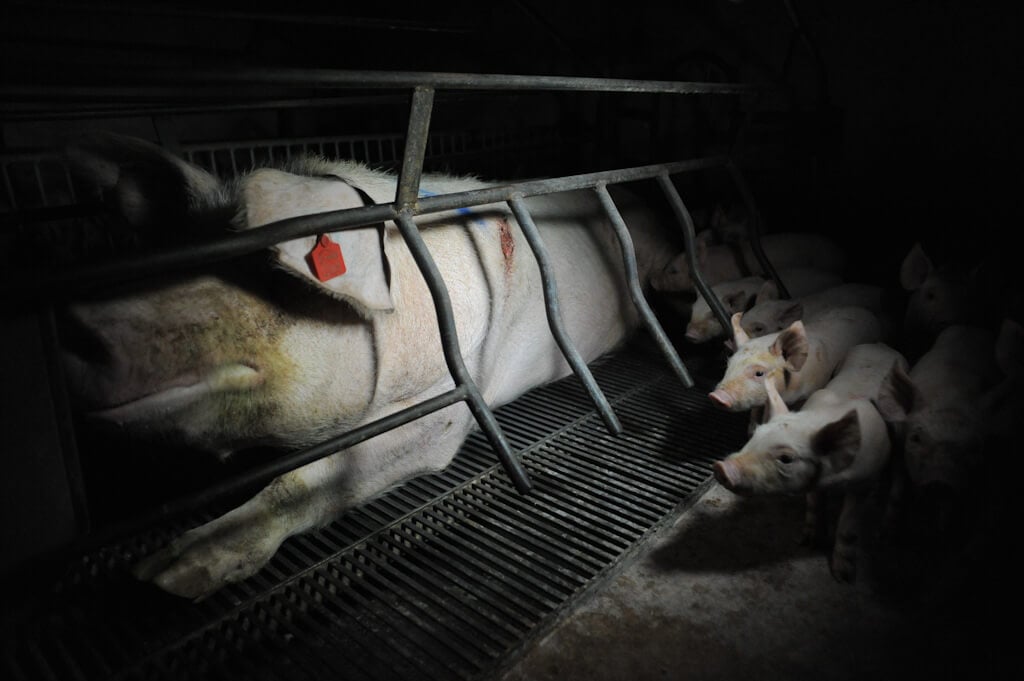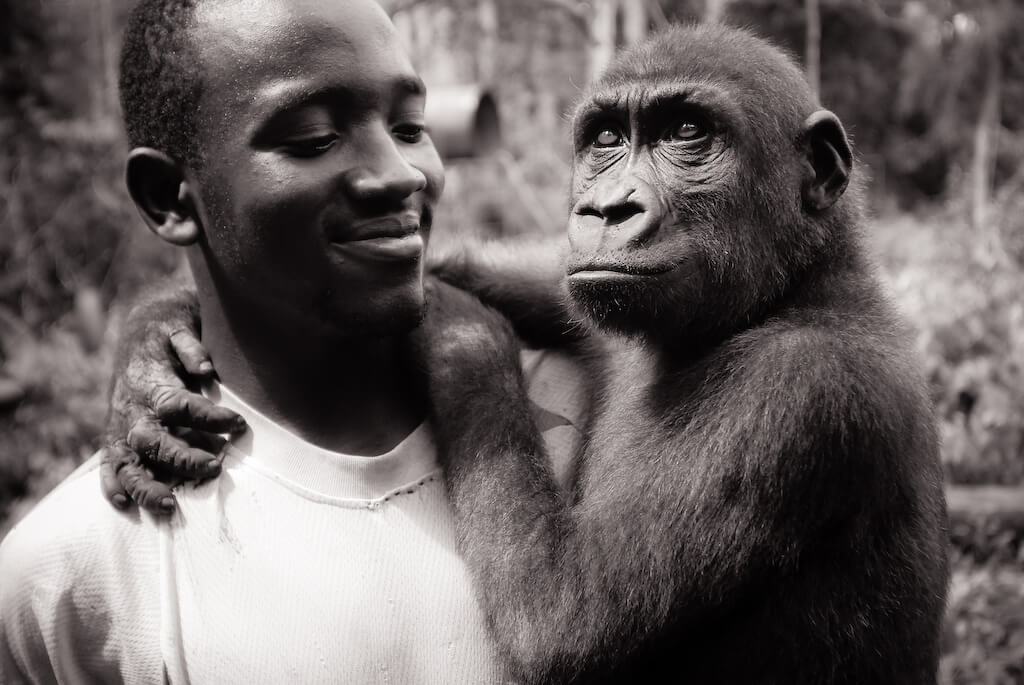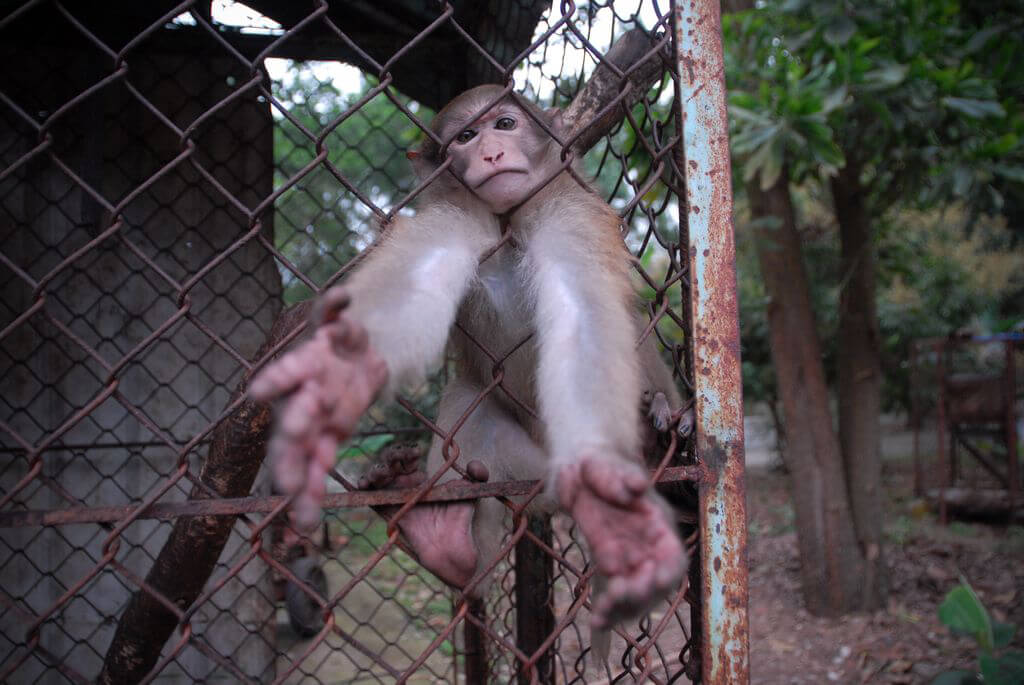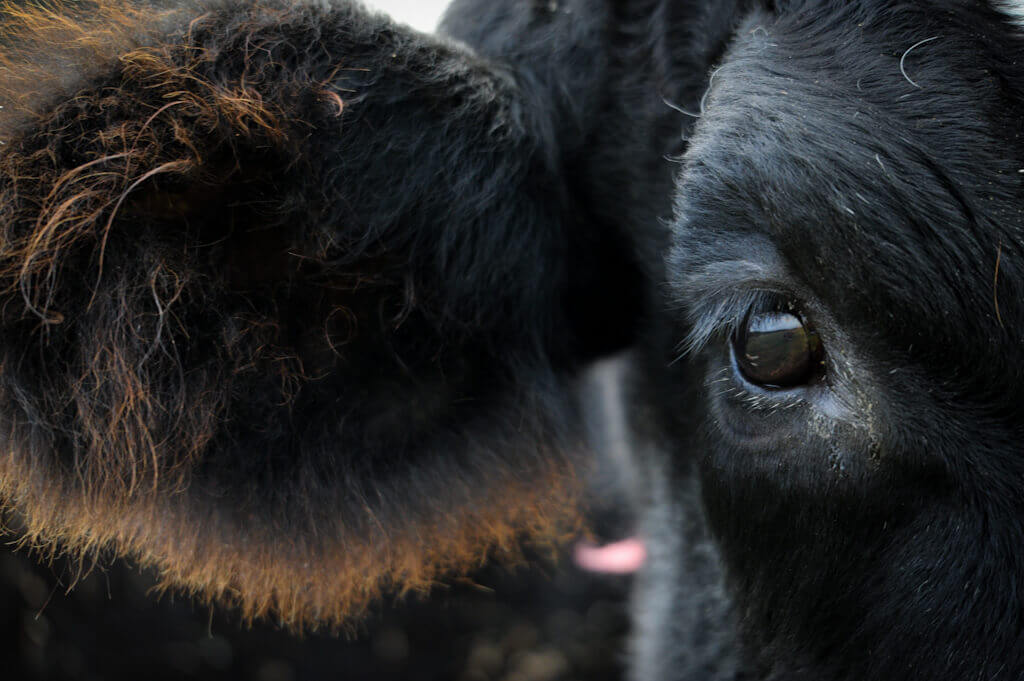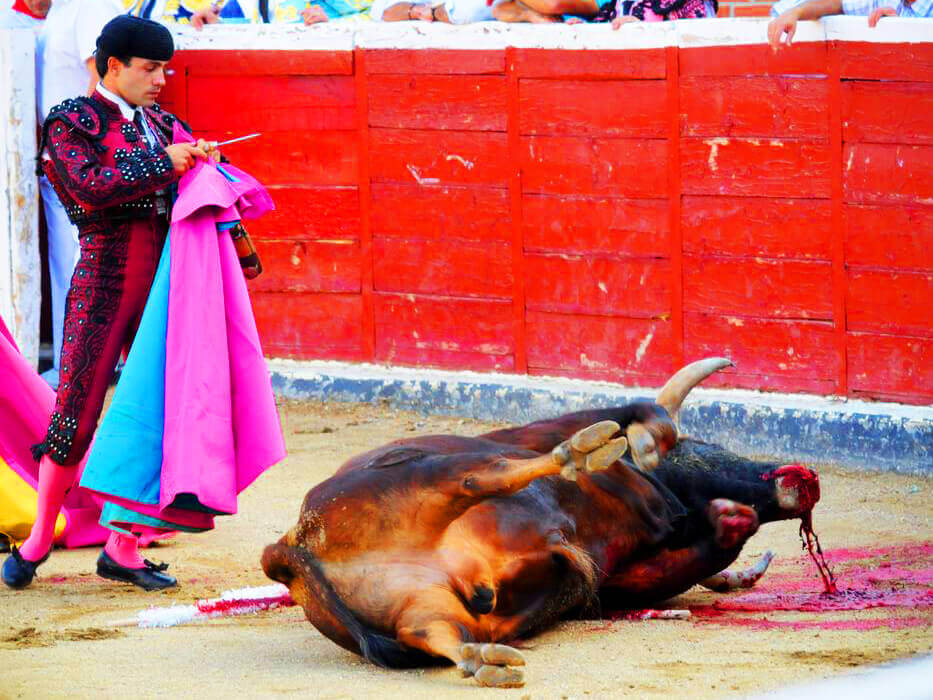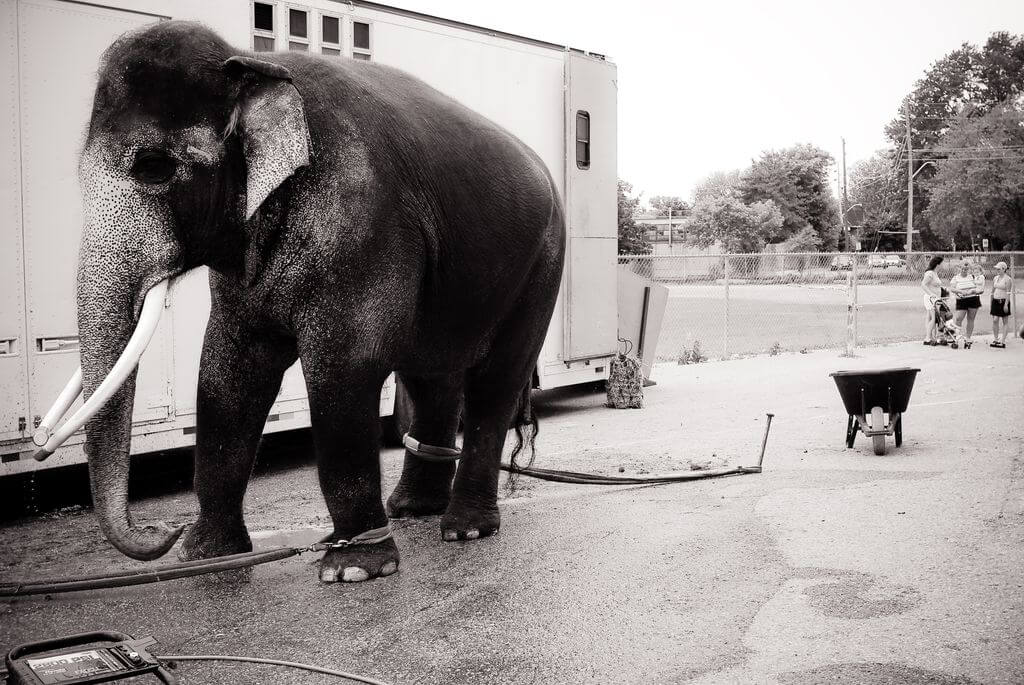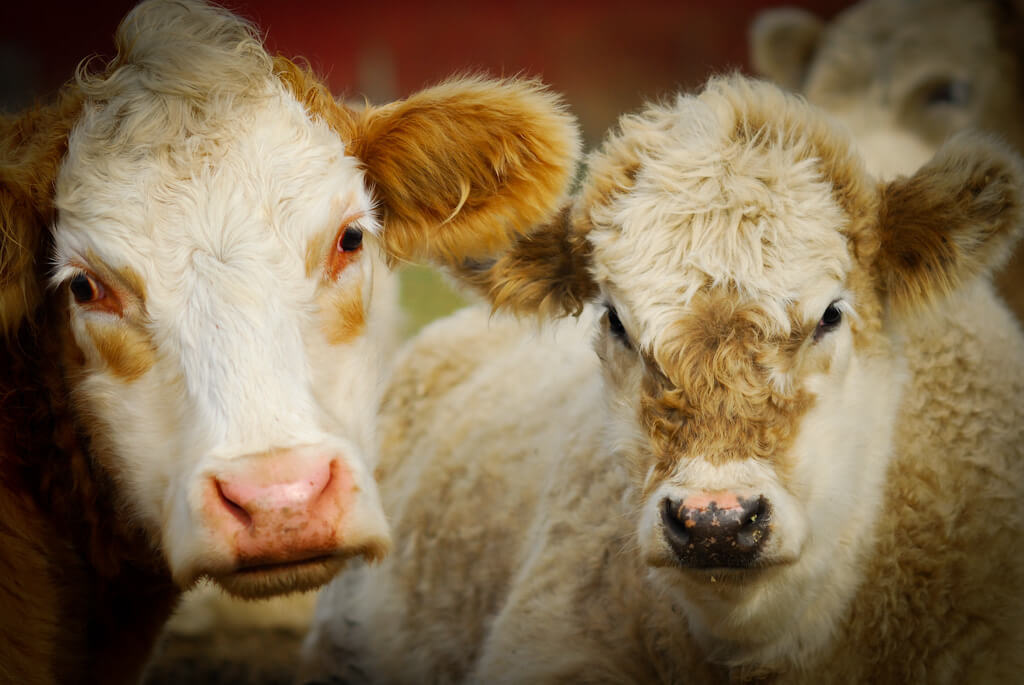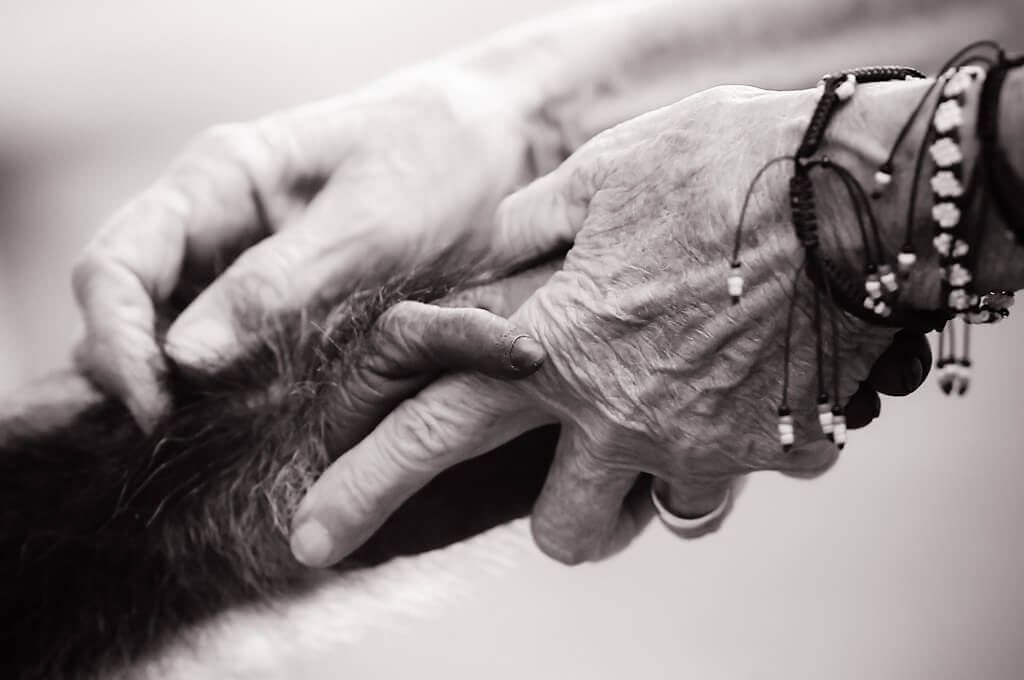Sunday, June 28, 2015
The Dog Factory - a Shocking BBC Documentary
Thursday, February 5, 2015
I am you, only different.
Borrowed from PETA....Human beings create temporary and arbitrary boundaries to exclude beings who aren’t like them. Human beings have justified wars, slavery, sexual violence, and military conquests through the mistaken belief that those who are “different” do not experience suffering and are not worthy of moral consideration.
These boundaries change throughout history, and we’re horrified now to recall the abuse inflicted on others once classified as outsiders: the extermination of Jewish people by the Nazis, the enslavement of African people by American plantation owners, and the slaughter of Christian people for entertainment by Roman centurions. Laws now forbid discrimination based on gender, race, religion, ability, age, and sexual orientation. Yet just a century ago, human beings who were seen as different by those with power faced torture, exploitation, and death.
Sometimes those in power claimed that juvenile or dark-skinned human beings couldn’t feel pain. Sometimes the powerful claimed that their superiority was granted by God. Our society no longer believes that any human being has the right to rape, torture, or enslave another human being for any reason. We accept that all human beings share a fundamental value and celebrate our differences.
Ethical
Do unto others as you would have them do unto you.
We are taught the Golden Rule as young children, and all major religions teach principles of nonviolence and kindness. The Rev. Dr. Martin Luther King Jr. said, “Injustice anywhere is a threat to justice everywhere.” Ethical treatment—the Golden Rule—must be extended to all living beings: reptiles, mammals, fish, insects, birds, amphibians, and crustaceans.
Would we imprison our children in cages too small for them to move? Would we violate our sisters and steal their babies? Would we deliberately infect our friends with diseases and leave them untreated? Of course not—so why would we do the same to other beings? We must abandon the archaic and incorrect boundary of “human,” which we use to justify the ongoing massacre of billions of beings.
More than a century ago, Charles Darwin showed that all beings had the same common ancestor. All beings share the desire to live. We all feel pain, joy, grief, and pleasure. We all have worth.
Treatment
Animals are not ours to eat, wear, experiment on, use for entertainment, or abuse in any other way.
All beings desire freedom to live a natural life, according to their inherent desires and instincts. While the lives of all beings necessarily involve some amount of suffering, human beings must stop deliberately inflicting suffering on all beings for our own selfish desires. We lose nothing in replacing a cheeseburger with a veggie burger or a leather purse with a fabric one. But beings we exploit lose their lives just for our fleeting fancy.
We are taught from a young age to discriminate among beings. We are fooled into eating the flesh of some beings, ignoring the cries of hunted beings, and cuddling with furry baby beings. We grow up confused—as adults, most of us feel sick and sad when we see living beings tortured and killed, yet we purchase and consume the flesh, fur, secretions, and skin of living beings every day. We work hard to deceive ourselves and each other in order to maintain the illusion of a real boundary around “human.”
The threats of economic collapse, the defiant claims of inherent rights, and the stubborn refusal to change behavior—these tired arguments have been heard and overcome many times in the past. Every time a boundary shifts, the suffragists or the abolitionists or the emancipators are at first ridiculed and belittled for their stance of equal consideration. Eventually, the lies are exposed, and freedom is won—for women, blacks, Christians, gays, Asians, the Irish, Catholics, Jews. Let freedom now include all beings.
Animals
We are all animals.
Human beings have few, if any, unique capabilities—many beings can learn languages, enjoy complex social bonds, sacrifice pleasure for the good of others, use tools, imagine, and dream. Many beings remember information, play with friends, enjoy intimacy, gossip, and mourn their deceased. Some beings have enormous capabilities beyond our own—in navigation, endurance, communication, and detection of natural phenomena. We don’t yet fully understand how all beings think—or what they think—but dismissing their mental world as less developed, rational, moral, or intelligent than our own is clearly a mistake.
Regardless of their capabilities, no living being deserves to be abused. We believe that it’s wrong to torture infant and disabled human beings who don’t have the same abilities as adults. In the same way, all beings deserve liberty and respect notbecause they share the characteristics we admire in ourselves but because they areliving beings. We share the same evolutionary origins, we inhabit the same Earth, and we are ruled by the same laws of nature. We are all the same.
Monday, January 12, 2015
Rudimentary Peni Pig in a Blanket anarcho hardcor…: http://youtu.be/ZD0Jh8Jn7os
Friday, January 2, 2015
Why the Animals Need Religion by Norm Phelps
Taken as a whole, the animal rights movement is hostile to religion. And this is tragic because
until animal rights gains the support of at least a sizable chunk of mainstream religion, we will
always be marginalized. In America, campaigns for social justice succeed to the degree that
they receive support from organized religion. Causes that enjoy the sponsorship of our
churches and synagogues become public policy; those that do not remain marginal or vanish
from view.
It has been this way throughout our history. The original call to end human slavery came from
men and women in England whose religious faith inspired them to speak out against evil. These
included George Fox, founder of the Society of Friends, and his fellow Quaker John Woolman,
John Wesley, founder of Methodism, and Richard “Humanity Dick” Martin and William
Wilberforce, both of whom credited their social conscience to religious conviction. On this side
of the Atlantic, their cry was taken up by religiously inspired abolitionists like Lucretia Mott,
Sojourner Truth, Susan B. Anthony, Maria W. Stewart, William Lloyd Garrison, John Brown,
and Frederick Douglass. In 1783, eighty years before emancipation, the Society of Friends
yearly meeting for Pennsylvania, New Jersey, Delaware, western Maryland, and western
Virginia (the largest and most influential Quaker meeting in the country) petitioned Congress to
abolish slavery. Right up to the signing of the Emancipation Proclamation, churches were the
most popular settings for anti-slavery rallies, while their members filled the ranks of the
abolitionist movement, and the language of the Sunday morning sermon became the language of
abolition, filled with appeals to Christian mercy and divine justice, drawing the parallel between
the American slavery of Africans and the Egyptian slavery of the Israelites, while celebrating
emancipation as “crossing the Jordan” and freedom as “the Promised Land.”
Nearly a century later, the civil rights movement picked up where the abolitionists had left off.
Born in the churches of Atlanta and Birmingham after World War II, it spread first through the
black churches of the south, then those of the north, and finally to white churches and
synagogues across the country. Martin Luther King, Jr., who was the movement’s single most
influential leader, and his closest associates, Ralph David Abernathy, Fred Shuttlesworth, Floyd
McKissick, and Jesse Jackson were Baptist ministers; two others, Edgar Nixon and A. Philip
Randolph, were the sons of ministers, and yet another, Bayard Rustin, was raised on the
Quaker philosophy of his grandmother and educated at Wilberforce College, which taught the
Christian social gospel of its namesake, William Wilberforce. They were all inspired by their
religious faith to take up the cause, and their followers came first and foremost from the
churches. The organization they created, the largest, most important, and most effective civil
rights organization of the 20th century, was called The Southern Christian Leadership
Conference.
As with the abolition movement, much of the rhetoric of the civil rights movement was the
rhetoric of religion. Consider this brief passage from Martin Luther King’s “Letter from a
Birmingham Jail.” “But more basically, I am in Birmingham because injustice is here. Just as
the prophets of the eighth century B.C. left their villages and carried their ‘thus saith the Lord’
far beyond the boundaries of their home towns, and just as the Apostle Paul left his village of
Tarsus and carried the gospel of Jesus Christ to the far corners of the Greco-Roman world, so
am I compelled to carry the gospel of freedom beyond my own home town. Like Paul, I must
constantly respond to the Macedonian call for aid.”
Dr. King is referring to Acts 16:9, which describes a vision in which Paul was visited by a
Macedonian who begged him to “come and help us.” Macedonia was a rough and tumble
frontier province on the northern fringe of the Classical world. King is suggesting that he has
been called by God to the land of the barbarians, where he will have to endure great hardships
and risk great dangers.
When, a few days before his death, Dr. King said, “I have been to the mountaintop, I have
seen the promised land,” he was identifying himself with Moses, who when death was upon
him, was taken by God to the top of Mount Nebo, where he could look out and see the
promised land that he would not live to enter. And more importantly, he was identifying African-
Americans suffering under segregation with the suffering of the Israelites who were enslaved in
Egypt. Those were identifications that resonated with Americans of all races and religions
because the stories of the Bible are as much a part of the American mythology as Paul Revere
and the Boston Tea Party—and they carry with them the moral authority that even secular
Americans grant only to values that are rooted in religion.
Even Malcolm X, who is often portrayed as the polar opposite of Martin Luther King, and after
him was the most popular and influential civil rights leader, found his inspiration in religion – in
his case, Islam – and invoked the moral authority of religion.
Historians and sociologists, in thrall to the secularism which these days is a litmus test for
respectability among people who fancy themselves intellectuals, treat the religious nature of the
civil rights movement somewhat like a Victorian gentleman would have treated the case of a
pregnant, unmarried sister: it is something not to be mentioned in polite company. To them the
religious roots of the civil rights movement betray an embarrassing lack of sophistication. They
prefer to patronize the black religious community by treating it as a purely social institution
whose role was to lend logistical support to the civil rights movement, rather than as the
spiritual organism that gave birth to it. But whether the academic community likes it or not, the
most important contribution of the churches – black, white, and integrated – to the civil rights
movement was not a communication network and ready-made audiences for activists; it was
moral authority. When the pastors said that integration and equality before the law were right
and that segregation and inequality were wrong, their congregations listened; and over time, so
did the rest of America. It was the same pattern that had characterized the abolition movement
a hundred years before.
The women’s suffrage movement grew out of the abolitionist movement, and the two shared
many of the same religiously inspired leaders, including Lucretia Mott, Susan B. Anthony,
Sarah and Angelina Grimke, Frederick Douglass, and William Lloyd Garrison. Again, the
nation’s churches provided leadership, membership, and rallying places for the suffrage
movement, as well as a rhetoric that carried a moral authority able to pull the rest of the
country along in its wake. Churches became battlegrounds in the struggle for women’s suffrage,
especially in the west, where harsh necessity had forced women to work, fight, and endure
hardship in a fashion that quickly disabused men of the ego inflating myth that women were the
“weaker sex,” unsuited by their gender to responsibility and power.
If the modern feminist and gay and lesbian rights movements are less obviously rooted in
religion than these earlier movements, it is nonetheless true that they have garnered the support
of large segments of mainstream religion in America. Most denominations now ordain women
pastors, deacons, and bishops, and even the Roman Catholic Church, which does not, has its
share of female theologians, such as Marie Hendrickx, a high-ranking Vatican staff member
who is a close associate of Pope Benedict XVI, the very conservative former Cardinal Joseph
Ratzinger. Only in the far extremes of the evangelical Christian right do women who want to
pursue careers in traditionally male dominated professions, and who expect to receive equal
pay, equal treatment, and equal opportunities while doing so, meet with systemic disapproval.
Although it has not, by and large, been shouting its support from the rooftops, mainstream
American Christianity and Judaism have quietly accepted the goals of the feminist movement,
at least as they apply in the secular world, and in so doing, have assured its lasting success.
Likewise with homosexual rights. The recent appointment of an openly gay bishop by the
Episcopal Church is only the most visible evidence of a change that has been slowly and quietly
taking place in liberal and mainstream congregations around the country over the past three
decades. Gay civil marriage could become a reality in America with little more than token
objections from most mainstream congregations. Among Christians, only the evangelical right
and the Catholic Church would line up solidly against it, and among Catholics, the issue would
serve to open wider the already cavernous gap that exists between the hierarchy on the one
hand and the laity and much of the clerical rank-and-file on the other. Like the women’s
movement, the gay and lesbian rights movement is bringing about a permanent revolution in
American society in large part because its appeal to conscience has persuaded a major segment
of the religious community to quietly support it.
Progressivism Charges over the Cliff
At the other end of the scale, the near total collapse of liberal and progressive movements that
was the most important social development of the second half of the 20th century was due in
large measure to the identification in the public mind of progressivism with aggressive
secularism and atheism, and a corresponding identification of free-market conservatism with
religion. When the leaders of the socialist, communist, and anarchist movements in the 19th and
20th centuries wrapped themselves in the banner of materialism and declared religion to be at
best an irrelevant anachronism and at worst an instrument of oppression and “the opiate of the
people,” they were unwittingly arranging their own failure in the United States. And following
World War II, the United States would intervene politically, militarily, and economically to
bring about their failure in Europe. The much ballyhooed (at least until recent weeks; I am
writing in December, 2008.) triumph of virtually unrestrained free-market capitalism is due in
large part to the success of conservatives in identifying democratic socialism in the public mind
with communism, and identifying both with atheism. By deliberately poking a finger in the eye
of the religious community, the progressive movement succeeded in marginalizing itself for at
least a full generation. We are an increasingly – and frighteningly – reactionary country today
because the leadership of the progressive movements of the twentieth century heaped scorn on
the religion which the overwhelming majority of Americans hold so dear (whether they actually
practice it or not), while the robber barons of industry realized that by saying the right prayers
and singing the right hymns they could persuade the public to vote against their own economic
and social self-interest.
If we do not want animal rights to go the way of decent public education, universal higher
education, universal health care, and a social safety net that offers genuine protection to those
who cannot cope on their own, we had better learn the lessons that the failure of these goals
teaches. And the most important of those lessons is this: In our one nation under God, if
religion is against you, you lose.
A Holy Nation
Only in Muslim countries is religion as dominant a factor in public life as in America. Because
we are divided among a number of denominations, the profoundly religious orientation of the
United States is not as apparent as the religious orientation of, say, the countries of Latin
America where the vast majority belong to a single denomination, but it is actually stronger.
Whether they actively practice it or not – whether or not they even believe most of it in their
secret heart of hearts – most Americans look to religion for their moral values and their ethical
principles. Thus, religion has a radiating influence that extends far beyond the walls of the
church to permeate our entire culture. Our social and political discourse is framed in terms of
religious concepts to a degree that is incomprehensible to Europeans and to most American
progressives. But the latter, as we have seen, ignore it at their peril.
Throughout the world as a whole, there are only two circumstances in which social movements
can succeed while appearing to disrespect religion. The first is where the population is highly
secularized and religion plays a very minor role in public life, as in Scandinavia. The second is
where there is strong anti-clerical sentiment based on the church’s historic alliance with an
oppressive ruling class, as in Italy and much of Latin America. Neither circumstance obtains in
the United States.
In his book The European Dream, social analyst Jeremy Rifkin recites some mind-boggling
numbers about religion in American life. Rather than simply rehearsing familiar statistics about
religious affiliation and church attendance, let’s focus on the more pertinent question of the role
that religion plays in shaping Americans’ values and their understanding of the world. According
to Rifkin, who relies on published polling data by respected, independent groups like the Gallup
Organization and the Pew Research Center for the People and the Press, “Nearly half of the
American people say that it is necessary to believe in God to have good values,” while 58%
believe that “the strength of American society is ‘predicated on the religious faith of its
people.’” “Forty-five percent of Americans believe that ‘God created human beings pretty
much in their present form at one time within the last 10,000 years or so,’ and an equal number
believe that the second coming of Christ will occur in their lifetime.” Sixty-eight percent of
college graduates and 55% of holders of masters degrees and doctorates “believe in the devil.”
A whopping 82% of Americans believe in Heaven as a literal place to which souls go after
death. Sixty percent of Americans “say that their faith is involved in every aspect of their lives,”
and 82% say that “God is very important to them.” A public that describes their religious faith
in these terms is not going to be responsive to an animal rights movement that treats religion as
part of the problem and actively teaches that it ought to be replaced by a secular worldview.
The Failures of Religion
There can be no denying that animal advocates have good reason to be distrustful of religion.
The Judeo-Christian tradition that is dominant in the United States has a miserable record on
animals. Not only has it failed to provide leadership, it has more often been actively on the side
of animal exploitation and murder, as is shown in the Jewish and Christian practice of thanking
God before each meal for the dead flesh of murdered animals. Exhortations from the pulpit to
show animals kindness generally have stopped far short of suggestions that we ought not be
abusing and killing them for our own purposes. And it is certainly no coincidence that Western
Europe, where personal lifestyle and public policy are much less shaped by religion than they
are here, is far ahead of the United States in the protection of animals.
But it is equally true that many of the same churches that now defend animal slavery as
ordained by God once defended human slavery on the same basis, and not without justification.
There are several passages in the Bible that approve of human slavery, while there is no
passage in the Bible that condemns it. The Bible actually lends more support to animal rights
than to the abolition of human slavery.
And yet, as we have seen, the movement to end slavery was born and nurtured in the churches,
White churches as well as Black. And it is this pattern that we must strive to replicate. Religious
abolitionists like Garrison and Douglass generally ignored the passages in the Bible that could be
quoted in support of slavery. Instead, they focused on the passages that express the heart of the
Bible’s spiritual message, such as “You shall love your neighbor as yourself,” “Do unto others
as you would have them do unto you,” “Blessed are the merciful,” and “Blessed are the
meek.” Slavery, they repeated over and over again, is incompatible with the Bible’s
overarching message. The Bible’s teachings on love and mercy can only be understood as a
condemnation of slavery.
This is the same message that we must take to the churches and synagogues of America.
Animal exploitation – animal agriculture, vivisection, hunting, fishing, rodeos, and so on – are
incompatible with the Bible’s overarching message. Jewish and Christian teachings on love and
mercy can only be understood as a condemnation of animal exploitation. Imprisoning, torturing,
and killing God’s innocent sentient creatures for our own benefit cannot be reconciled with
Judaism’s and Christianity’s teachings on love, self-sacrifice, and mercy. The Bible clearly and
consistently teaches that animals are sentient beings, able to suffer just as we are. The Bible
also teaches that, like us, animals have immortal souls and will be present in the Kingdom of
Heaven (the Messianic Age). Building on this foundation, we must repeat over and over again,
to everyone who is willing to listen, and some who aren’t, that animal exploitation violates the
foundational teachings of Judaism and Christianity on love and mercy.
If the abolitionists had thrown up their hands in disgust at the level of support for slavery in
White churches and condemned religion, they would have sabotaged their own cause by
alienating almost the entirety of the American public. If we throw up our hands in disgust at the
level of support for animal abuse in America’s churches and synagogues, we will set back the
animals’ cause by at least a generation and probably more. Like the old abolitionists, we must
convert the churches, not write them off.
Among Christians, we will make the best progress by starting with the liberal and traditionally
mainstream churches, including (among others, I do not mean to rule out a denomination by not
mentioning it) Unitarian-Universalist, Quaker, the churches of the Anglican Communion, the
Dutch Reformed Churches, the more moderate Lutheran congregations, the United Methodist
Church, the United Church of Christ, the Church of the Brethren, the Seventh Day Adventists,
the Congregationalists, the Eastern Orthodox churches (which have an ancient tradition dating
back to the Desert Fathers of ethical vegetarianism and respect for animals), and, interestingly
enough, the more liberal elements of the Roman Catholic Church. There are several very
dynamic inter-denominational groups, including the Christian Vegetarian Association, led by Dr.
Steven Kaufmann, Viatoris Ministries and Humane Religion Magazine, founded by the late
Rev. J. R. Hyland, God's Creatures Ministry, led by Janice Fredericks, and All-Creatures.Org,
led by United Methodist minister Rev. Frank Hoffman and his wife Mary. The mainstream,
secular animal rights movement ought to be reaching out to these groups and to the churches,
and offering them resources and support. PETA is the role model here with an outstanding
program of outreach to religious communities – created and guided by their vice president for
international grassroots campaigns Bruce Friedrich, a devout Catholic. And it is an encouraging
sign that The Humane Society of the United States has recently created a religious outreach
program headed by Christine Gutleben.
Judaism has always had a stronger tradition of respect for animals than most Christian
denominations, and except for the so-called ultra-orthodox, all the major branches of Judaism,
Reform, Conservative, Orthodox, and Reconstructionist are potentially open to the animals’
cause. Here, groups like Jewish Vegetarians of North America, founded and led by Dr. Richard
Schwartz, and Jews for Animal Rights, founded and led by Dr. Roberta Kalechofsky, are doing
outstanding work. Again, they need more support from the secular animal protection movement.
Islam, which is becoming increasingly important in the United States, combines a strong
tradition of animal welfare with an equally strong opposition to animal rights. Just as Judaism is
the Abrahamic religion most open to the animal rights message, I believe that Islam will prove
to be the least open. But there are voices within Islam speaking out in defense of animals, such
as the late Al-Hafiz B. A. Masri, the Saudi-born imam of an influential English mosque, who
called for an end to vivisection and animal agriculture.
A Built-in Bias
Far too many of the leaders of the animal rights movement have a personal animus toward
religion that disinclines them to reach out to the religious community on behalf of animals.
Some are anti-religion on principle. They believe that religion is an outmoded superstition that
needs to be done away with for the general good of humanity and society. Unfortunately, the
recent ascendancy of the religious right in America has reinforced this attitude in those already
in that camp, and pushed into it others who had not been there previously. To them I can only
say two things. First, you are never going to convert the American public to atheism. And if you
persist in identifying animal rights with a materialist worldview, you will condemn the animals to
unending abuse. Second, the religious right does not represent true religion. The religious
fundamentalism wedded to political fascism that is threatening to destroy the American way of
life is alien to the spirit of authentic faith, which is reflected in the teachings of the Later
Prophets and Jesus and represented by the ages old principles of “You shall love your neighbor
as yourself,” and “Blessed are the merciful.” It is to believers who live by these themes that we
must appeal, not the fundamentalists who pay them lip service while living by a code of
militancy that displays love and mercy only toward those who agree with them.
Other movement leaders (and rank and file as well) believe that animal abuse arises from and is
reinforced by the dominionist outlook of Judaism and Christianity, which are inherently hostile
to animals. This view finds its most thoughtful and articulate expression in An Unnatural Order
by Jim Mason, an environmental and animal rights pioneer whose expose of factory farming,
Animal Factories (co-authored with Peter Singer), has found a well-deserved place in the first
rank of animal rights classics. Near the end of An Unnatural Order, Mason gives a passing nod
to traditions within Christianity, Judaism, and Islam that are friendly to women, animals, and
the environment. Then he notes that these traditions “would, if revived, contribute some
healing to the spiritual, sexual, and environmental crises we now find ourselves in. One hopes
that the progressive faithful can find them and successfully revive them.” The conditional verb
and the limiting “some” in the first sentence suck the life out of the hope expressed in the
second. As long as the animal rights movement sits passively on the sidelines and refuses to
address religion with both respect and uncompromising moral force, Mason’s “hope” will
remain forlorn.
But Mason is right about one thing, those traditions are there, and they reach in unbroken
lineage back to the ultimate wellsprings of human morality, which are in every society religious.
In the Abrahamic religions, they reach back to “You shall love your neighbor as yourself,” “Do
unto others as you would have them do unto you,” “Blessed are the merciful,” “Blessed are the
peacemakers.” One of the fundamental challenges facing the animal rights movement is
showing modern Christians, Jews, and Muslims what these statements mean for our
relationship to animals in the modern world.
Our task is not to discredit or revise religious ethics. Quite the opposite. Our task is to highlight
the ethical teachings that already stand at the heart of the great religions, and show that they
apply equally to all of God’s sentient creatures. The teachings that would deny animals the full
protection of Jewish, Christian, and Islamic ethics did not originate in Judaism, Christianity, or
Islam. They originated in Classical Greek philosophy, specifically in the teachings of Aristotle
and the Stoics. They are alien imports into the Abrahamic religions, and therefore, they are not
of the essence of these faiths. (For a description of this process, see Phelps, The Longest
Struggle, pp. 34-36 and 52-58.) It is universal, boundless love and compassion that are of their
essence, and that can lead the religious communities to animal rights, just at universal,
boundless love and compassion have led them to human rights without regard for such morally
irrelevant factors as race, nationality, religion, gender, or sexual orientation.
In fact, the core ethical teaching of all the world’s major religions is identical. It is unbounded,
universal love and compassion. And this creates at the heart of each of the great religions a
natural receptivity to the animal rights message. At present, this door of receptivity is most
often blocked by selfish barricades that would limit our love and compassion to other human
beings. But, as we have seen, similar barricades have just as often and just as fiercely blocked
members of other races, nationalities, or religions from the love and compassion of the faithful,
and those barricades were overcome when they were shown to be at odds with the ethical heart
of the faith. In fact, the conflict between fundamentalism and the more generous forms of
religion (in Christianity, Islam, Judaism, Hinduism, and other faiths) can be best understood as
the struggle between those who would limit religion’s ethical teachings to a small, restricted
group of “deserving” recipients, and those who would apply them as they were originally
formulated—to all who stand in need of love, acceptance, and mercy.
A False Messiah
I do not share the hope of some that the replacement of a religious, spiritual worldview by a
“scientific,” materialist worldview will advance the animals’ cause. Historically, science has
treated animals no better than religion, and scientists are in the forefront of contemporary
animal abusers. Darwin may have believed that nonhuman animals have rich interior lives not
much different from our own and that this has serious implications for our treatment of them,
but subsequent generations of scientists have ignored this aspect of his work. Vivisection (which
even Darwin supported) is the creation of science, not religion, and one-hundred percent of
vivisectors are scientists. Biological, medical, chemical, and social scientists have not hesitated
to imprison, torture, and murder vast numbers of animals in the name of science. Geneticists
routinely create “transgenic” animals who are deliberately designed to suffer from diseases and
other painful, disabling, and lethal abnormalities that make them useful in experiments. They
have gone beyond inflicting suffering on already living beings to designing beings whose
suffering is built into them, an atrocity beyond the grasp of earlier generations of abusers.
The fathers of modern vivisection, Francois Magendie and Claude Bernard, were among the
nineteenth century’s foremost opponents of religion and leading advocates for the scientific
worldview. But that did not stop them from conducting experiments on unanesthetized animals
so cruel that they almost single-handedly gave rise to the anti-vivisection movement in Europe
and North America.
The dominionist outlook of the Abrahamic religions does not cause animal exploitation, and
abolishing religion will not end it. We exploit animals because we enjoy the products of animal
exploitation and we can do so with impunity. Dominionism simply provides an after-the-fact
justification for what we already want to do. This is why animal exploitation is not limited to
Jewish, Christian, and Muslim countries, but is found everywhere on Earth, regardless of
religion, culture, history, or economic system. We like the results, and we can get away with it.
If religion were abolished tomorrow, the animal exploiters would never miss a beat. They would
simply find a new justification, and life—and death—would go on as before, business as usual,
just as scientists have found a nonreligious justification for their cruelties and killings. Until we
are made to face the pure evil of what we are doing, we will always find a defense of animal
exploitation in whatever belief system we adopt.
In the final analysis, the argument for animal rights is entirely a moral argument, based on
compassion. It is wrong for humankind to inflict suffering and premature death on sentient
creatures because we enjoy the taste of their flesh, milk, or eggs, or we think their skin looks
and feels good on our feet, or we hope that if we torture and kill enough animals we can extend
our own lives, or whatever. That is the alpha and the omega of animal rights. There may be
other, entirely valid, reasons for doing things that advance the animals’ cause – such as
adopting a vegan diet to improve our health, or eliminating animal agriculture to reduce global
warming and end world hunger—but there is no reason other than morality for granting animals
rights. And the arbiter of American morality is religion. As long as our rabbis, priests, pastors,
and—increasingly—imams are telling Americans that animal exploitation is not wrong, the bulk
of Americans will see no reason to give up their prime rib, their leather shoes, the research that
may cure cancer, or the circus elephants that their kids enjoy so much. When you are making a
moral argument, as we are, the refusal to make it to the very people and institutions that honor
morality above all else here on earth is irresponsible. We have a powerful moral and spiritual
argument on behalf of animals. And like the abolitionists and civil rights advocates of old, we
need to use it.
Subscribe to:
Comments (Atom)
